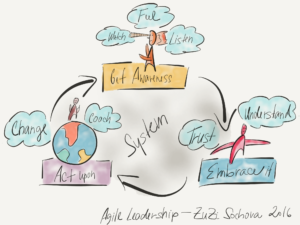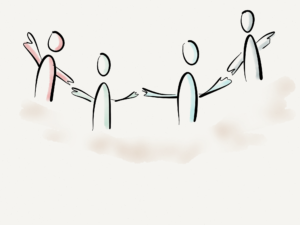What is agile leadership about? How would you define it, how would you explain it? Those are just a few questions people are asking these days.
Agile leaders are able to inspire others, creates and communicate an appealing vision or a higher purpose which motivates organization and would constantly be looking for better ways of working through feedback. It’s about being inclusive, support others on their leadership journey. Being open to new ideas, experiments and innovations. Support creativity. Be able to garden the right mindset and creates cultures based on collaboration. Agile leader is a coach and good listener.
Agile leadership is not about tools, practices or methodologies. It’s an ability to look at the organization from the system perspective, understand system dynamics, be able to get awareness about what’s happening, embrace it, understand it and become an integral part of the system and finally be able to act upon and influence it with coaching, and initiate a change.
New management paradigm is about collaboration and trust, decentralization, continuous adaptation and flexibility, cooperation and teamwork. From the static management in the industrial era, we shifted to strategic management in last twenty years of the last century and moved quickly into the dynamic management which tries to keep up the speed with modern constantly changing, complex world. That’s the world which critically needs agile leadership as anything else is not flexible enough to deal with nowadays challenges. Companies need more creativity, collaboration, and innovations – simply agility. That’s the way how to be successful. That’s the way how to achieve their goals. That’s the way how to survive and don’t become new dinosaurs who are so huge, slow and inflexible that they eventually disappear from the world.


